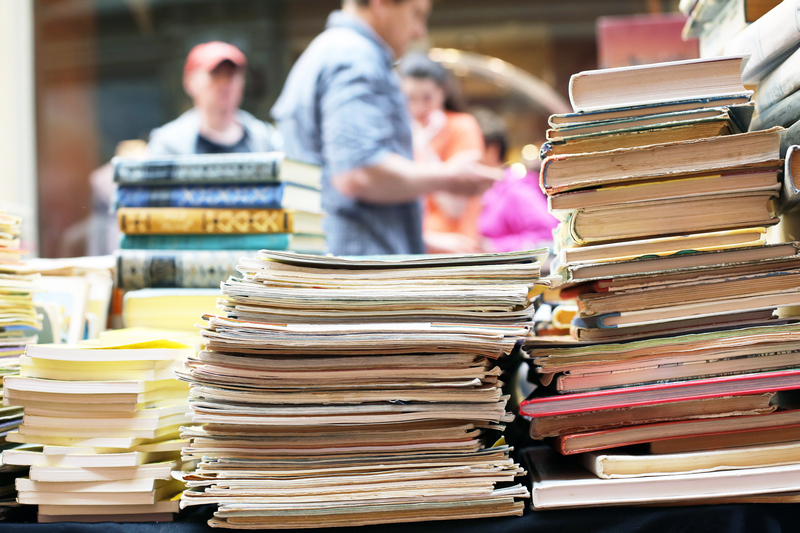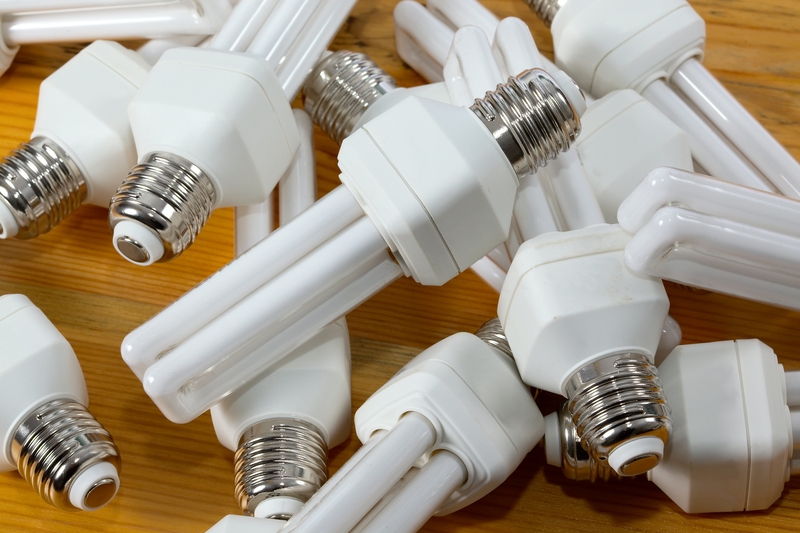Achieve Recycling Success at Home with Simple and Smart Tips
Embracing recycling at home is one of the most effective ways to contribute to a healthier planet. Whether you're a beginner or looking to step up your eco-friendly game, our comprehensive guide will help you achieve recycling success at home with simple and smart tips. This article is your go-to resource for mastering household recycling--covering how to recycle properly, reduce waste, and adopt sustainable habits that make a real difference.
Why Recycling at Home Matters
Effective home recycling offers a host of environmental and economic benefits. By diverting materials like paper, plastic, and metal from landfills, you help conserve natural resources, reduce greenhouse gas emissions, and save energy. Moreover, smart recycling practices encourage responsible consumption and inspire communities to innovate for a cleaner future.
- Reduces landfill waste: Reusing and recycling curb the volume going to landfills.
- Conserves resources: Recaptures valuable materials for reuse.
- Saves energy: Recycled materials consume less energy in production.
- Cuts pollution: Less waste means fewer toxins and emissions.
Ready to make recycling a successful part of your daily routine? Read on for practical, achievable home recycling tips that get results.

Set Up a Smart Home Recycling Station
Organization is the first step towards successful recycling at home. Creating an efficient recycling station will encourage your household to participate and make sorting easier for everyone.
Steps to Create an Effective Recycling Setup
- Choose the Right Location: Place bins in the kitchen, garage, or near your main waste area for convenience.
- Use Labeled Containers: Label bins for paper, plastics, metals, glass, and compost to avoid confusion.
- Educate Your Household: Teach family members about what can and cannot be recycled locally.
- Keep Supplies Handy: Store scissors for breaking down boxes, bags for soft plastics, or a rinse tub for cleaning recyclables.
Tip: Check with your municipal recycling program to learn accepted materials. Customizing your bins for local guidelines will optimize your recycling effort.
What You Can and Cannot Recycle at Home
Understanding what materials are recyclable helps prevent contamination and ensures your items are processed efficiently. Each community has different rules, but the following lists cover commonly accepted materials:
Commonly Accepted Recyclable Materials
- Paper products: Newspapers, magazines, office paper, cardboard, junk mail (remove plastic windows).
- Plastics: Bottles, tubs, clean food containers (check recycling numbers accepted in your area).
- Metals: Aluminum cans, tin cans, foil (clean and dry).
- Glass: Bottles and jars (check if separated by color in your locality).
Items to Avoid Placing in Recycling Bins
- Plastic bags and wrap: Take these to designated drop-off points at grocery stores.
- Food-soiled items: Pizza boxes, greasy paper plates.
- Styrofoam: Not accepted by most curbside programs.
- Tangled items: Hoses, cords, and string lights can jam sorting machines.
- Hazardous waste: Batteries, electronics, chemicals need special disposal methods.
Pro Tip: When in doubt, check with your local recycling provider. Proper sorting is essential for recycling success at home.
Smart Tips for Effective Home Recycling
Little changes can make recycling at home easier and more efficient. Try these clever strategies to boost your recycling success and reduce landfill waste:
1. Clean and Dry Your Recyclables
Rinse recyclable containers before tossing them in the bin. Food residue contaminates loads and can lead to over 25% of recyclables being sent to landfills!
2. Break Down Cardboard Boxes
Flattening boxes saves space and helps collection vehicles maximize capacity, making recycling pickups more efficient.
3. Avoid Wish-Cycling
Wish-cycling is placing non-recyclable items in the bin in the hope they'll be recycled. If you're unsure, it's better to leave it out or consult your local waste management guidelines.
4. Keep Caps On Bottles
Many municipalities now accept bottles with caps on, as they're easier to sort and recycle together. Double-check your community's policy.
5. Collect Soft Plastics Separately
Soft plastics like shopping bags, bread bags, or plastic wrap should not go in most curbside recycling but can often be dropped off at participating retail locations for specialized recycling.
6. Compost Food Scraps and Yard Waste
Composting diverts organics from landfill and provides nutrient-rich soil for your garden, reducing methane emissions and helping your plants thrive.
7. Recycle Electronic Waste Responsibly
Find e-waste collection events or drop-off centers for electronics. Many parts of old gadgets can be reclaimed and reused if processed safely.
Advanced Tips for Recycling Success at Home
Ready to take your home recycling efforts even further? Consider these expert tips for achieving recycling success and building a zero-waste household.
Rethink & Reduce Before Recycling
Remember, recycling is the last resort. Practice these two crucial R's first:
- Rethink: Choose products with minimal or recyclable packaging, buy in bulk, or opt for refillable items.
- Reduce: Buy only what you need and avoid single-use items wherever possible.
Repurpose and Reuse
Many household items can get a second life:
- Use glass jars for storage or crafts.
- Repurpose cardboard for gardening or organizing.
- Turn old textiles into cleaning rags or craft materials.
- Donate gently used goods to local charities.
Get the Family Involved
Make recycling educational and fun. Set up family challenges, assign recycling "champions," and celebrate milestones to motivate everyone to participate actively.
Stay Up to Date on Local Recycling Rules
Recycling guidelines can change. Check your city or waste hauler's website periodically for updates and new programs, such as curbside composting or hazardous waste events.
Common Recycling Myths Debunked
Misinformation can derail your recycling success at home. Let's clear up some common myths:
- Myth 1: "If it has a recycling symbol, it's recyclable." - Fact: Not all plastics with the chasing arrows sign are accepted in curbside bins. Always check the recycling code.
- Myth 2: "Items get sorted at the plant, so it doesn't matter how I recycle." - Fact: Contamination can ruin entire batches. Sorting and cleaning recyclables at home is crucial.
- Myth 3: "Recycling uses more energy than it saves." - Fact: Recycling almost always uses less energy than manufacturing new products from raw materials.
Track Your Home Recycling Progress
Keeping tabs on your recycling and waste reduction efforts can drive improvement and motivate your family to stick with it. Try these methods:
- Weigh your trash and recyclables each week to track reductions over time.
- Keep a recycling journal to note progress, challenges, and new ideas.
- Share your journey on social media or with neighbors to foster a community of recyclers.
Where to Find Local Recycling Resources
Knowledge is power! Pin down these valuable resources to achieve recycling success at home:
- Municipal websites: Check your city's or county's website for curbside collection guides, recycling maps, and event calendars.
- Recycling directories: Websites like Earth911 or Call2Recycle provide searchable databases for items not accepted curbside.
- Community groups: Join online forums or Facebook groups focused on sustainability or zero waste in your area.
- Retail drop-off points: Many stores accept things like plastic bags, batteries, and electronics for special recycling.

Simple Products That Support Home Recycling Success
Investing in a few practical products can simplify your home recycling routine:
- Stackable recycling bins: Save space and make sorting easy.
- Kitchen compost pail: Collect food scraps mess-free.
- Label kits: Help everyone remember what goes where.
- Bottle and can crushers: Reduce volume for easier storage.
- Reusable grocery bags: Cut down on single-use plastics.
Remember: The best recycling system is the one you use consistently. Choose solutions that suit your home, and adapt as your needs evolve.
Final Thoughts: Make Recycling a Habit, Not a Hassle
Achieving recycling success at home doesn't have to be complicated. With these simple and smart tips--from organizing your space and knowing what to recycle to rethinking consumption and educating your family--you can make a significant positive impact on the environment. Each small change adds up to big results for your household and your planet.
Start today:
- Set up a dedicated recycling station.
- Get familiar with your local rules and resources.
- Engage your household in the process.
- Continuously learn, share, and improve.
With commitment and a few smart adjustments, sustainable living and recycling success at home is well within your reach!